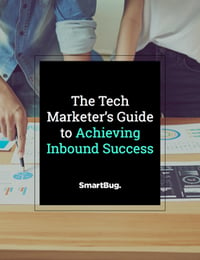
3 Ways AI Will Change the Way You Staff Your Marketing Department
July 11, 2018
By Jennifer Lux
When I first started my career in marketing, if someone told me that my work would one day be augmented by cloud-based artificial intelligence and machine learning, I would have argued “not in my lifetime”. Fast forward almost 20 years and it’s clear that AI is not only in marketing to stay, but AI is also reshaping marketing teams as we know them.
Leveraging martech to reach your goals faster is a given, but what you might not have considered is how implementing such technology—like advanced automation and AI—will naturally shift the hiring profile of your marketing staff members. Here are three ways AI will change the way you staff your marketing department.
1. Hiring Critical Thinkers for Entry-Level Positions
Gone are the days when entry-level marketing positions were filled by “button clickers” who occupied their days with busywork. At its core, AI is the use of machine-driven, learned intelligence to solve repetitive problems or complete repetitive tasks with the same outcomes as human workers. The easiest tasks to hand off to bots are those that have similar inputs and outputs time and time again. These are tasks that were once assigned to fresh-out-of-college, entry-level marketers who were hungry to get hands-on experience in the real world.
Today, everything from writing headline copy to serving highly personalized ads can be done with AI, so entry-level marketers will need to have more critical and analytical minds than required in the past. Entry-level jobs will involve synthesizing information and applying context to ensure that AI outputs align with the proper intent. For instance, AI-powered content ideation platforms will suggest article topics that your audience will most likely engage with, and an entry-level person will now need to apply persona context and their knowledge of past content performance to determine if those AI-generated blog topics are likely to resonate with the audience. This requires candidates with skill sets that include data assimilation, critical thinking, and discernment The upside is that as bots take over repetitive, mundane tasks, employee engagement will likely improve, as staff are asked to do higher level analysis and use their brains to their full capacity rather than getting burned out on repetitive busywork.
2. Asking Creative Leaders to Be More Data-Driven
Previously, it wasn’t uncommon for a creative marketing staff to sit around a boardroom table talking about brand identity, messaging, new product/service development, and more. Today, AI provides big data sets that can inform many of those creative decisions.
Let’s take live chat, for instance. The consistent, repeatable questions asked in live chat can provide insights into what content is missing on your website and what products/services consumers are looking for. If you sell online leadership training programs and frequently have a live chat question from website visitors asking whether you also provide sales training, you have a preliminary insight into a strong cross-sell opportunity. These AI-powered big data sets will start to drive your portfolio of services more than a creative group of people brainstorming your next product roll out. While creative minds will keep a company fresh and cutting-edge, marketing teams of the future will be more data- and consumer-driven. This is due to the fact that a growing quantity of data from various channels will be available due to AI augmentation. As these large data sets become available, the behavior and needs of leads and customers will drive the evolution of a company.
3. Recruiting More Marketing Generalists
As AI-driven marketing tactics continue to proliferate, more repeatable tasks will be offloaded to machines. This will accelerate scaling and consolidate existing marketing positions, and over time, one marketing generalist may be able to handle the work of several specialists with the assistance of AI-driven technology. While individual specialists may have been needed to execute paid, inbound, and social channels in the past, with the addition of AI, one generalist can supplement their expertise with AI-driven technology and natural language processing to produce and place ad copy, create social posts, and write long-form inbound content. Having staff members with broader skills and the ability to oversee several efforts will be paramount in next-generation marketing departments.
While AI-driven martech may be met with resistance as people fear their positions will be replaced by bots, the truth is that work augmented by machines has tremendous upsides. By handing off mundane tasks to bots, marketers gain freedom to work on more satisfying tasks and decisions that will never be replaced by artificial intelligence. The teams that organize their marketing staff around progressive technologies like AI, automation, bots, and machine learning are those that will continue to outpace their competition.

About the author
Jennifer Lux was formerly a Team Leader and Marketing Strategist at SmartBug Media. She has over 15 years of marketing and business development experience – in agency, in-house, and consulting roles. Jennifer has a Bachelor’s degree in Neuroscience. Read more articles by Jennifer Lux.








.jpeg?width=800&length=800&name=AdobeStock_437037370%20(1).jpeg)
